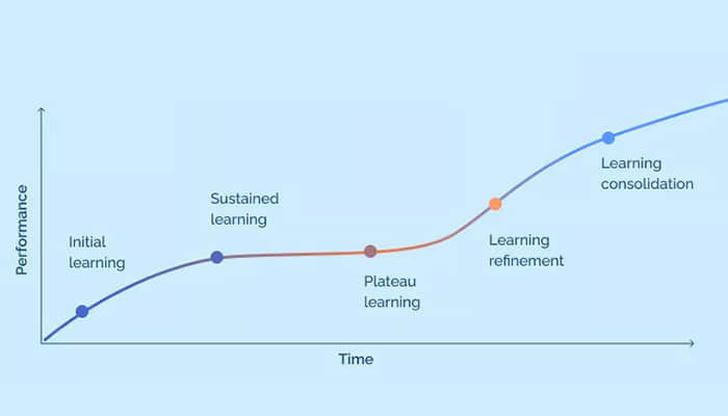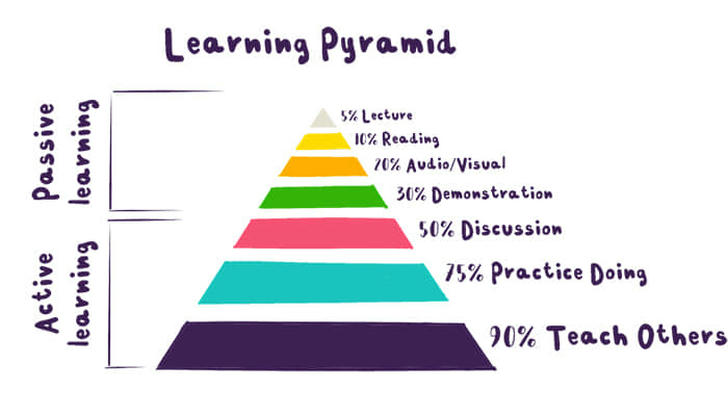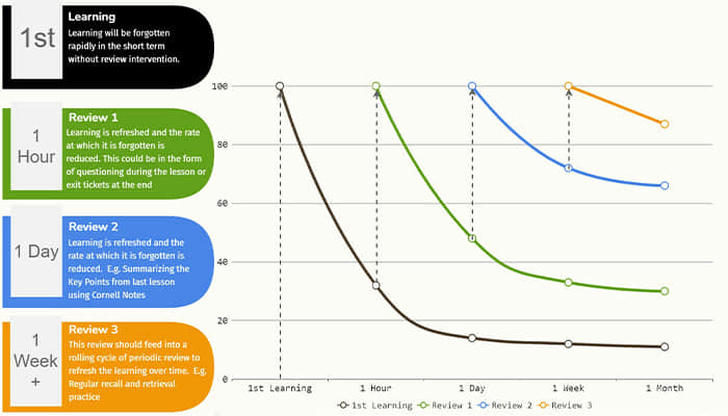8 Tips to Help You Maintain Lifelong Learning
Lifelong learning isn’t just about cramming for exams or ticking off degrees. It’s a continuous journey of intellectual and personal growth that extends far beyond the classroom. It’s the fire that ignites your curiosity, prompting you to seek out new knowledge and skills throughout your life. Lifelong learning keeps your mind sharp, opens doors to unexpected opportunities, and fuels your passions for a lifetime of fulfilling discovery.
Tip 1: Start From Interest and Asking Questions

Only things that interest you will give you self-motivation and move you forward, and any subsequent difficulties cannot be a reason to give up, they are just roadblocks. Starting from asking questions not only broadens one’s horizons, but also trains the ability to think independently and solve problems, put forward one’s own opinions, and inject a humanistic heritage that will benefit you for life.
Tip 2: Learning Growth Curve Theory

People often see learning as a direct exchange of effort for results. However, learning is a complex process with a “slow start zone” where initial efforts don’t yield immediate change. Many give up here, jumping between methods without realizing they need to push through this initial hurdle. While some reach the “accelerated improvement zone,” even those with impressive results haven’t reached a peak. Only a rare few, through extraordinary effort or extended learning, breakthrough to a plateau of mastery.
Tips 3: Follow the Learning Pyramid and Combine Theory With Practice

The pyramid theory shows that the average learning retention rate of listening and reading (these two are the learning methods of most people) is relatively low. Generally speaking, the knowledge that learners can remember by listening and reading alone is very limited. To improve the productivity of learning, you need to take notes, review, communicate with others, and then practice by yourself and other active learning methods.
Tip 4: Stay away From Comfort Zone, Deliberate Practice

Deliberate practice means learning a little away from your comfort zone in order to expand the boundaries of your abilities. The purpose of deliberate practice is to help everyone break through the critical points of the “slow start zone” and the “accelerated improvement zone”. To put it simply, it’s not that you don’t work hard, you just don’t know how to work hard, and your efforts are ineffective.
Tip 5: Fighting the Forgetting Curve

The Ebbinghaus forgetting curve describes the law of the human brain forgetting new things. A step-by-step intuitive description of how the human brain forgets new things. People can grasp the rules of forgetting from the forgetting curve and use them to improve their self-memory ability. After learning something, you need to review it frequently and use it repeatedly before you can remember it.
Tip 6: Set Reasonable Goals and Work Hard Within Your Qwn Stress Threshold

Anxiety is a manifestation of some kind of stress. Pressure has a threshold value. If it does not exceed a certain critical point, it will form motivation, and if it exceeds it, it will form escape. This is why some people can solve problems when they encounter stress, while others cannot.
There are three reasons for excessive stress: mismatch of abilities, heavy workload, and procrastination habits. A person initially sets a goal that is unrealistic and beyond his own abilities. Once it is not realized for one day, there will be a cumulative collapse, and it will not be done for several days in a row, and finally the matter will be nothing. Therefore, please work within your ability, set a goal that you can withstand a certain amount of pressure, and complete it step by step to ensure that your deliberate practice can produce results.
Tip 7: Create a Feedback Mechanism

Every time you finish learning a period of time or a piece of content, give yourself a reward, motivational feedback, and an information record. Reward incentives can give you immediate feedback, a sense of gain, pleasure, and even dopamine, thereby “cheating” your brain into thinking that learning is actually a very happy thing. Human nature is based on the principle of pleasure, and happiness will motivate you to continue to repeat this.
The advantage of information recording is that every time you study, a progress table is formed, and you can review and summarize it every once in a while. Such a record, similar to the score summary for each game passed, will also easily give you a sense of accomplishment and encourage you to keep doing it.
Tip 8: Time Management

Everyone has the same 24 hours a day, but their efficiency is different. How to be more efficient than others? Here are the two most practical methods for beginners’ time management:
The Pomodoro Technique is a time statistics method that allows you to focus efficiently within 25 minutes. Start completing the first task until the 25 minutes end. If you are still in an efficient and focused state at this time, you do not need to stop working and continue with the next 25 minutes. If you are tired, rest for 3 to 5 minutes, and then continue until the work is completed.
Choose a time that suits you to focus. When people are at their most energetic, their attention and concentration are at their highest. The brain also has the fastest reaction speed, and everything done at this time is very efficient. Some people do it in the morning, some in the afternoon, and many people do it late at night.
Lifelong learning isn’t a rigid pursuit, it’s a journey of exploration and discovery. Embrace the joy of learning, explore new topics that pique your curiosity, and never stop expanding your knowledge. This commitment to continuous growth will not only benefit your professional life but also enrich your personal journey and empower you to thrive in an ever-changing world.
